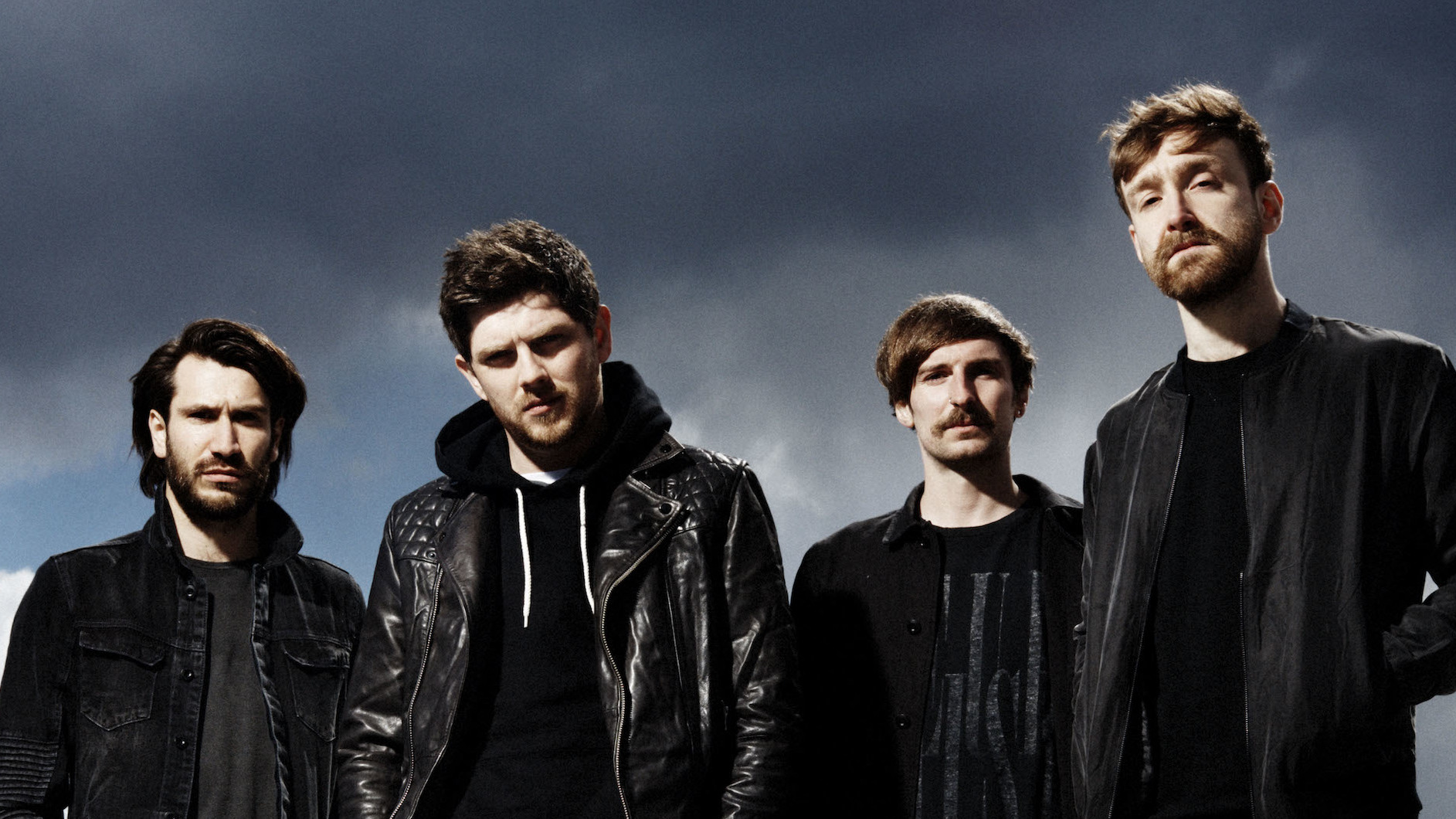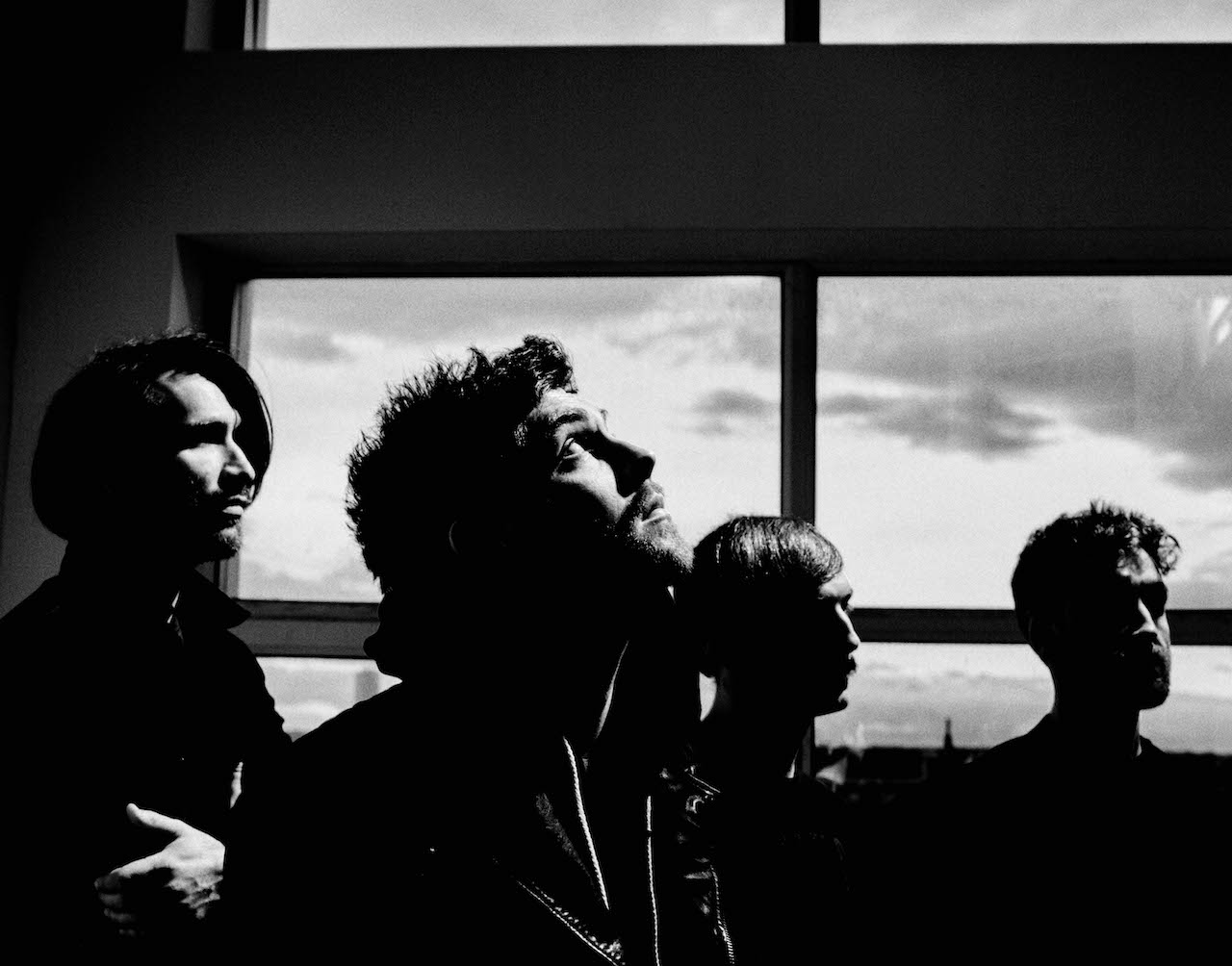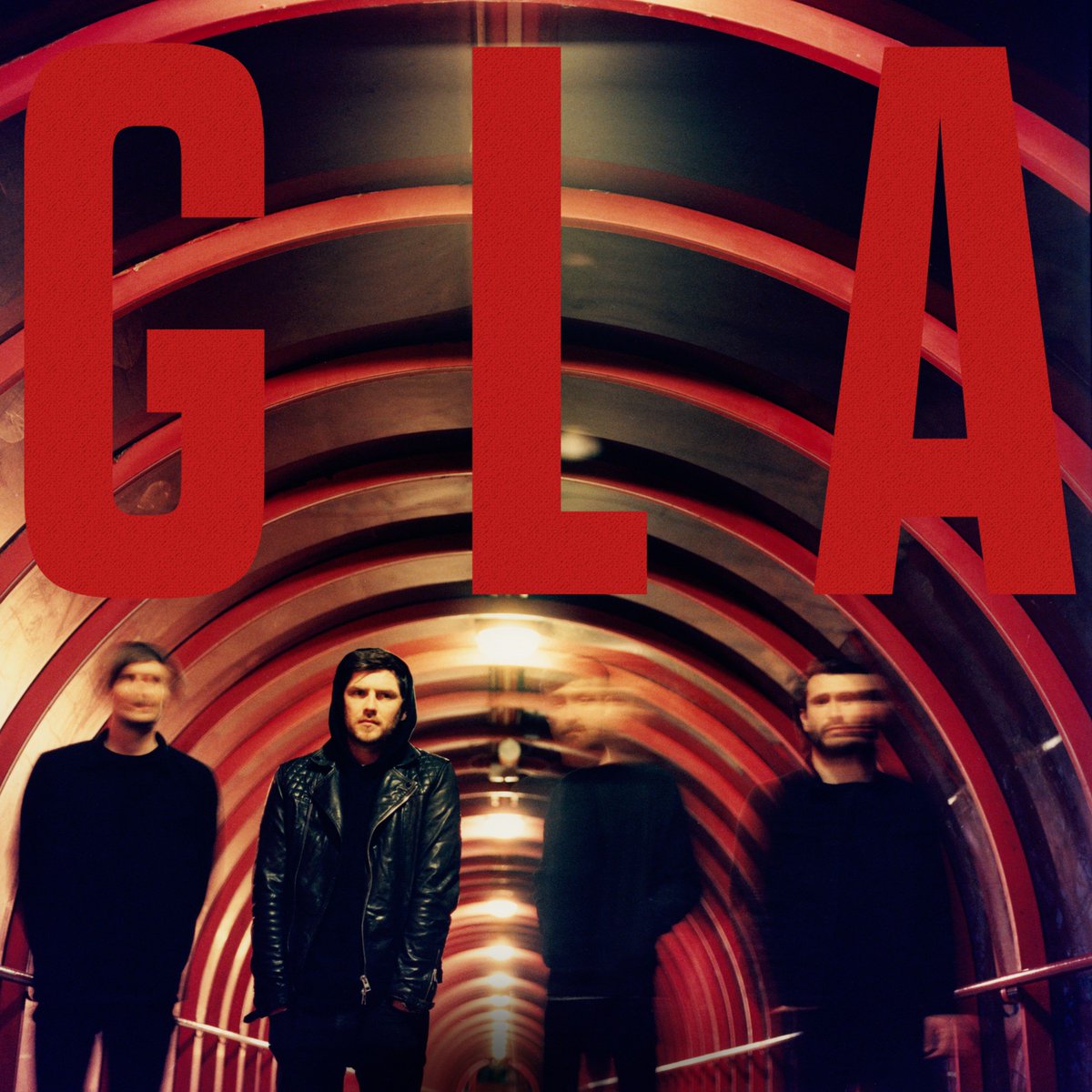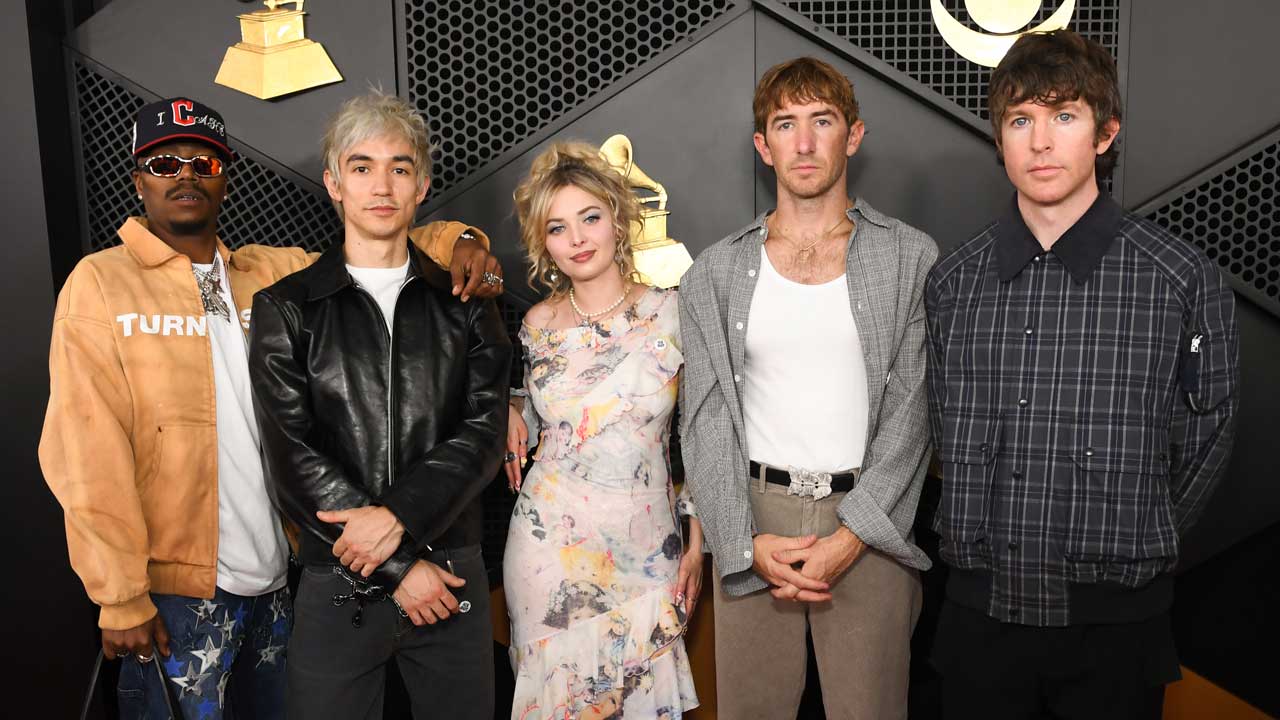Twin Atlantic: Sam McTrusty's track-by-track guide to GLA
Sam McTrusty reveals why Twin Atlantic had to change things up on their fourth full-length release

This month sees the release of Twin Atlantic’s fourth studio album. Produced by Jacknife Lee, GLA – the International Air Transport Association airport code for Glasgow, aviation fans – was recorded some 5,115 miles away in Los Angeles but has its roots very much at home.
“We wanted to integrate where we’re from and have that actually define the sound and tone of the album,” says frontman Sam McTrusty. “This record has much more of a deliberate personal stamp. Some people might not like the album because of that, but I think that’s also what’s going to make it our best album yet. It’s a pretty unforgiving record, and it feels a lot more dangerous and unexpected than anything we’ve ever done.”
The 12-track collection sees the four-piece deliberately push the more pop-infused moments of their last album Great Divide to one side in favour of a rawer collection of songs.

“A lot of the grandeur and neon arrows pointing towards the chorus on the last record came from raw ambition,” explains Sam. “We wanted to be heard and we wanted people to pay attention because we wanted the lifestyle of recording artists. But I feel like our ambition took over our artistic merit.
“We’d reached a stage where we were bored of trying to be something rather than just letting things happen,” he continues. “We’ve always tried to force this imagined end result and we’ve always had quite a strong vision at the start, so sometimes it felt like trying to fit a square peg into a circular hole. I feel like that’s a pretty apt analogy for our band, because we’re stubborn and obsessed with perfection. That’s been happening for the last eight years, so when the time came to write this album we were looking for the antidote to that.”
Parts of the Great Divide perhaps diluted the essence of what made Twin Atlantic such an interesting band in the first place. Despite getting daytime spins on national radio, the band realised it was time for a change.
“For this album we used a completely different approach,” says the singer. “Ross [McNae, bass and keyboards] and I set up home studios and we were recording stuff whilst we were writing, and a lot of those experiments turned out to be the template for the album.”
The latest news, features and interviews direct to your inbox, from the global home of alternative music.
“We didn’t want to allow our personal tastes to get in the way so we didn’t actually communicate as a band at all,” he adds. “I know that maybe sounds a bit harsh, but we didn’t want any old stigmas to get in the way. We just wanted to act on instinct and not think about anything; whatever sounded good when it was all jumbled together became the final thing. As a result, the dynamic in the band is healthier than it’s ever been. We’re four friends making music again, which made recording the album really easy and quick. We spent two years making Great Divide, but this album was done in three months. That speaks volumes to me.”
Right now it’s over to Sam for a track-by-track guide to GLA…
1. Gold Elephant : Cherry Alligator
McTrusty: “This song is pretty unhinged. It’s one of the last songs that we worked on during the recording process and by that time we felt unstoppably confident with what we were doing. I guess that’s why the song sounds so bold. Ross put it together musically and that allowed me to take a wider approach to the vocals; I tried to bottle how the riff and the intense drumming made me feel. It was probably the easiest song to record as well, and it excited us the most, which is why we put it at the start of the record. It sets the mood for the whole album.”
2. No Sleep
“This was the first single from the album. We did a music video for it and there’s a seven-inch you can get as well. We kind of wrote the whole song by humming and singing it to each other, then we put it into the computer and it morphed into this beast. Ross, again, was more musically involved in the writing of this one. That allowed me to approach making music from a producer’s standpoint rather than actually being in the band and getting caught up in the nitty gritty. This was one of the first songs we wrote for the album. It was the beginning of our new way of making music and that’s why we put it out as the first single; to reset and refresh people’s expectations of the band.”
3. You Are The Devil
“I’ve not thought about this song for a long time, or even heard it for a few months, but I was trying to address the idea of sexiness in rock ‘n’ roll with this one. It’s meant to represent that dangerous sexual element to rock ‘n’ roll that people are always attracted to. A lot of the lyrics are based around that too; they’re all really suggestive. So it’s a song that I put together quite a lot by myself, because you wouldn’t want to sit down and talk too much about that stuff with your pal. Musically, it relies on a lot of old ‘60s rock and pop structures, and it’s probably the most straight-forward song on the album in that sense.”
4. Overthinking
“Over-thinking stuff is something that I’m massively guilty of and it leads to huge bouts of anxiety and feelings of entrapment. A lot of that is creatively, too. The more I learn about music and songwriting and the whole art form of it, I sometimes get a bit stuck. And I like to put little messages to myself in all of our albums. The message here is to get to the point and not get too caught up in the madness that happens in the middle. The music reflects that; it’s urgent and vibrant and the tempo is quick and explosive.”
5. Ex El
“This song is probably the best example of who we are as musicians and people. It’s a bit all over the place and it maybe sounds like four or five different bands or even genres of music coming together: there’s a lot of hip-hop influence in the chorus, the middle-eight sounds like At The Drive-In, the verses are Fugazi and the intro sounds like Mogwai. It’s an infusion of all our musical tastes and personalities in one song.”
6. Valhalla
“Originally the word Valhalla just got tagged to this piece of music and it didn’t really mean anything, but once we got into the studio I started accepting that Glasgow is a kind of arrogant place and to grow up there, you have to have a tough exterior. So I was trying to reflect that side of growing up there in this song; the youth of this city are really bold and outspoken and they can be quite scary and intimidating to a lot of people. And when I started looking into the meaning of Valhalla a bit more I found out that it’s a place where gods go to die. So I tried to tie that in to the idea of youthful arrogance and the wider picture of tougher times in Glasgow. There’s samples of guys in Glasgow talking behind it too, and if you can work out what they’re saying then you win the ultimate prize.”
7. I Am Alive
“Conveniently, we were halfway through making the record when we got round to this song, and it was a little injection of determination. Even the main lyric reflects that. I was conscious of trying to explain to people through song and words what it felt like to be from Glasgow. It’s quite riffy and fun to play on guitar as well, and we kind of got lost in that side of things a little bit here. It was right at the time that David Bowie has passed away and we were listening to a lot of him – that’s a bit of a crass crossover talking about a guy dying when the song’s called I Am Alive, but that’s not intentional. We were trying to infuse Nirvana’s upbeat moments as well, and the madness and directness of Peaches. I guess it’s another song that blends a lot of up-tempo guitar bands. The middle-eight was inspired by Queens Of The Stone Age too, and it’s one of the few times I’ve sung in falsetto. It’s probably the most feminine sounding thing we’ve ever done, but it just felt right. It’s our anti-macho rock band moment.”
- Twin Atlantic No Sleep live video released
- Twin Atlantic announce UK and Ireland tour
- Twin Atlantic: Divide And Conquer
- The First Album I Ever Bought: Sam McTrusty, Twin Atlantic
8. Whispers
“This was another song that Ross wrote at his demo station at home. I’ve been asking him and Barry [KcKenna, lead guitar and cello] to chuck song ideas my way for the last nine years so that we could start to have these different elements as a band. It’s taken them that long, but they’ve finally done it, and it’s been a big personal experience for Ross in particular to channel his song writing voice. He shared an early demo of this song with me after one of his family members had passed away. When it’s your best friend telling you that type of story it’s a big moment, and we probably wouldn’t have included the song were it not for the fact that Glasgow has a reputation for being a dark city. Glasgow is also probably one of the friendliest cities and the people are really compassionate. It felt important to represent that on an album that was named after the place, by including a song about grief and dealing with death. It’s a sad song but it also feels hopeful, and that sums up a lot of the feelings that I get when I’m back home in that city. I’m sure a lot of people’s hometowns do the same thing for them.”
9. A Scar To Hide
“With this song, we wanted to show some of the more bleak backdrops that the city can have. It’s a working-class city based on industry and the people have got plenty of interesting stories to share. It’s probably the only song on the record that’s a type of love song. I kind of have a knack for doing these songs; I don’t know why or how. And we were lucky enough to work with a string composer called Davide Rossi, who’s won a bunch of Grammys and is basically in Coldplay – he does all their strings. We sent him the song with all the guitars, bass and drums done, along with five photos of Glasgow, which he used as a reference point for his composition. He really put his spin of genius on the track.”

10. Missing Link
“This song is high octane rock ‘n’ roll. We’d already covered most of the atmospheres that you can do with guitar riffs, and we felt it was right to include a song like this. It’s probably the most modern sounding track on the record; it doesn’t really sound like many other bands. The chorus, in particular, is huge. It kind of reminds me of an engine revving; that’s the best way I can think of to describe how it sounds.”
11. The Chaser
“The Chaser is heavily influenced by ‘70s glam rock. Ross and I learnt to play music together in his mum and dad’s house – his parents are huge Bowie and T-Rex fans. You can’t really get much cooler than some of those guitar parts. So glam rock was a big influence on us learning how to play guitar, and when we came to putting out an album named after where we’re from, it would’ve felt a bit disingenuous not including a song like this on the record. It sounds like a typical night out in Glasgow, and the message in the song is about ownership of who you are.”
12. Mothertongue
“We wanted to close the record with a personal take on where we’re from. We worked with our producer [Jacknife Lee] for this song, and it was the first time I’d ever walked into a room to write a song without already having the concept or an idea of a song to work on. I walked in at 10am with nothing and when I left at midnight this was what we had. I’d never a written a song like that before, with that sort of pressure, and it brought out this very vulnerable side. It was a huge learning experience and it allowed me to be slightly more honest about my hometown and my feelings towards it. The song is also a middle finger to people who want me to change my singing voice and adopt a more English or American sounding voice. It’s a defiant note to end the album on: “Listen to me sing in my mothertongue.”
GLA is out now through Red Bull Records. Twin Atlantic tour from October 7.
DJ, presenter, writer, photographer and podcaster Matt Stocks was a presenter on Kerrang! Radio before a year’s stint on the breakfast show at Team Rock Radio, where he also hosted a punk show and a talk show called Soundtrack Apocalypse. He then moved over to television, presenting on the Sony-owned UK channel Scuzz TV for three years, whilst writing regular features and reviews for Metal Hammer and Classic Rock magazine. He also wrote, produced and directed a feature-length documentary on Australian hard rock band Airbourne called It’s All For Rock ‘N’ Roll, and in 2017 launched his own podcast: Life in the Stocks. His first book, also called Life In The Stocks, was published in 2020. A second volume was published in April 2022.

